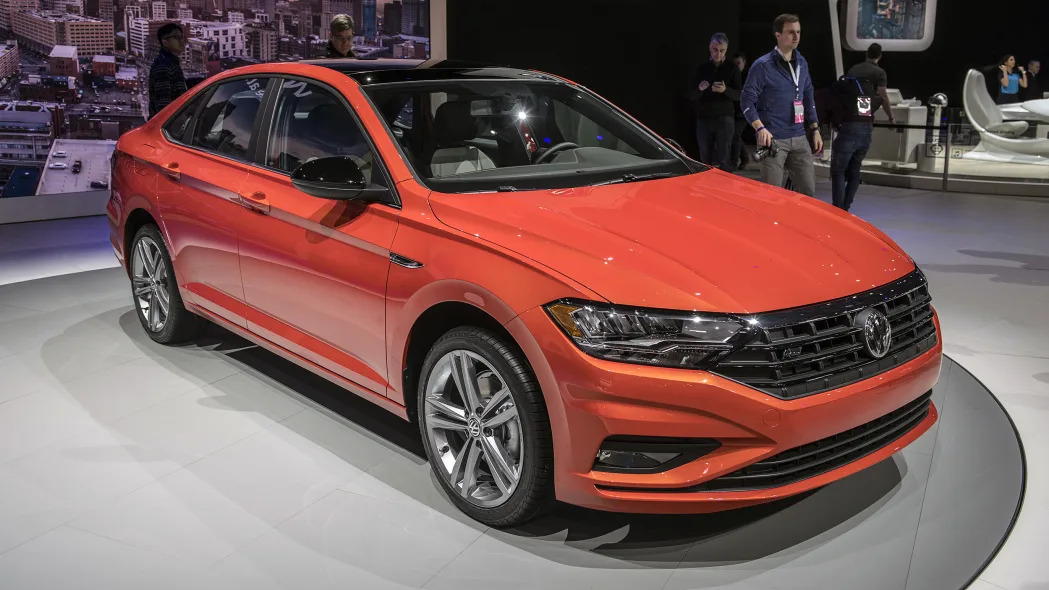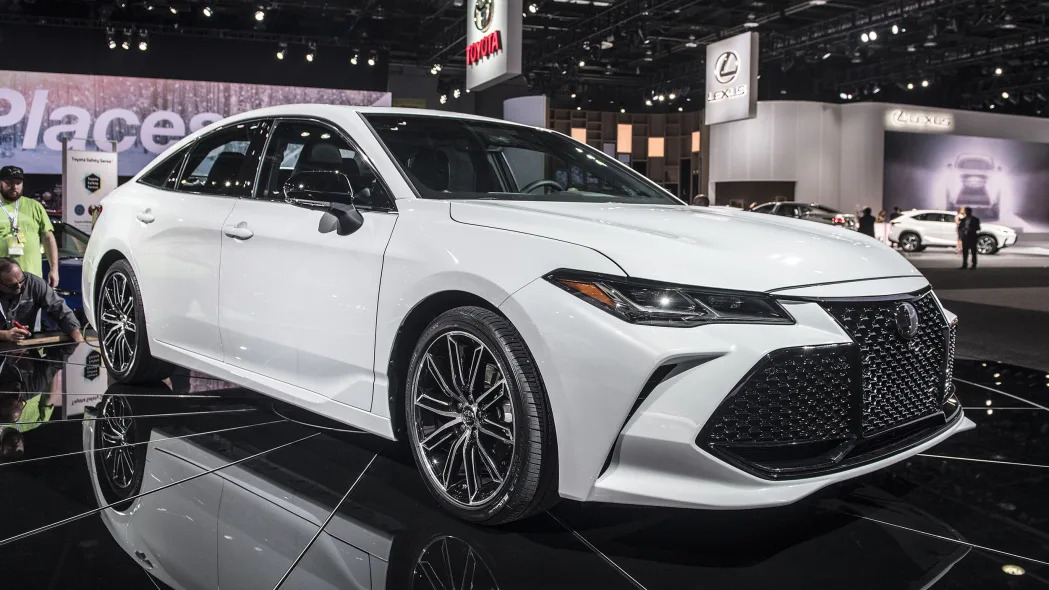As recently as 2015, midsize sedans were still the largest segment of the American vehicle market. Back then, cars commanded more than half of the nation's sales. When the tallying was complete in 2017, the midsize sedan was the fifth-most-popular segment. The top three were all trucks: Compact SUVs, midsize SUVs, and large pickups. Cars made up only one-third of overall sales, and their sales were down 11 percent over 2016.
It is into this mire that Volkswagen and Toyota have just introduced their latest sedans. For VW, it's an all-new version of its American bestseller, the Jetta. For Toyota, a fresh take on its flagship, the full-size Avalon. What are their hopes for these vehicles, whose sales were down 5 and 30 percent last year, respectively, but whose latest iterations generated interest at the show and a lot of interest among Autoblog readers?
"All of the reasons why car shoppers opted for a sedan instead of an SUV simply don't hold up anymore," says Jessica Caldwell, executive director of industry analysis for Edmunds. "SUVs are now fuel-efficient, have a smooth ride and are available in a range of sizes and styles, and also offer ride height and cargo flexibility that sedans just can't touch. As long as gas prices stay low and automakers continue to offer shoppers a wide range of choices, this change in buyer behavior isn't just a trend, it's a permanent shift."
"From a sedan point of view, students are only interested in doing German-style front-engine, rear-drive sedans," says Paul Snyder, automotive design dean at Detroit's prestigious Center for Creative Studies. "No one is interested in doing something basic like a Malibu. And the domestic manufacturers seem to almost be giving up that fight. I've heard that even Ford has put a hold on development of the next Fusion."We are not sure what this means for the sedan as a category. The Jetta looks a bit like an anodyne concept for a Corolla. The Avalon looks like an advance design concept for an old Lexus. Neither feels particularly au courant or contemporary in an essential way."
"Everything is up for grabs now," Snyder says. "It's not about sedan or SUV. Architecture is going to be the next big frontier in automotive design. Sadly, no one is taking advantage of that. Yet. And all we have is the toaster shape."
But maybe the toaster is not enough. "No one wants to go to just riding around in cubes," Snyder says. "As long as customers associate transportation with their personality, car design will be important. Cars will remain as our avatars."
It is into this mire that Volkswagen and Toyota have just introduced their latest sedans. For VW, it's an all-new version of its American bestseller, the Jetta. For Toyota, a fresh take on its flagship, the full-size Avalon. What are their hopes for these vehicles, whose sales were down 5 and 30 percent last year, respectively, but whose latest iterations generated interest at the show and a lot of interest among Autoblog readers?
"All of the reasons why car shoppers opted for a sedan instead of an SUV simply don't hold up anymore," says Jessica Caldwell, executive director of industry analysis for Edmunds. "SUVs are now fuel-efficient, have a smooth ride and are available in a range of sizes and styles, and also offer ride height and cargo flexibility that sedans just can't touch. As long as gas prices stay low and automakers continue to offer shoppers a wide range of choices, this change in buyer behavior isn't just a trend, it's a permanent shift."
> Related: 2019 VW Jetta vs. 2019 Kia Forte vs. 2018 Honda Civic: How they compare
This flight from sedans and toward SUVs also seems connected to an interest in vehicles that are more utilitarian and rational, and less playful and emotional. Design has long been a distinctive driver of the love between people and their cars, but it seems possible that, as consumers continue their migration toward rolling, all-wheel-drive storage containers, this will diminish."From a sedan point of view, students are only interested in doing German-style front-engine, rear-drive sedans," says Paul Snyder, automotive design dean at Detroit's prestigious Center for Creative Studies. "No one is interested in doing something basic like a Malibu. And the domestic manufacturers seem to almost be giving up that fight. I've heard that even Ford has put a hold on development of the next Fusion."We are not sure what this means for the sedan as a category. The Jetta looks a bit like an anodyne concept for a Corolla. The Avalon looks like an advance design concept for an old Lexus. Neither feels particularly au courant or contemporary in an essential way."
> Related: Why Ford might kill the Fusion, and why there are problems with that
As we move toward an even more rational, less emotional connection with cars as pure transportation — especially given our alleged self-driving future — it seems possible that exterior design becomes less prominent as an influence. For example, at CES last week, Toyota's big reveal was essentially a self-driving box on wheels that could be used for practically anything from transportation to retail."Everything is up for grabs now," Snyder says. "It's not about sedan or SUV. Architecture is going to be the next big frontier in automotive design. Sadly, no one is taking advantage of that. Yet. And all we have is the toaster shape."
But maybe the toaster is not enough. "No one wants to go to just riding around in cubes," Snyder says. "As long as customers associate transportation with their personality, car design will be important. Cars will remain as our avatars."
Related Video:



Sign in to post
Please sign in to leave a comment.
Continue